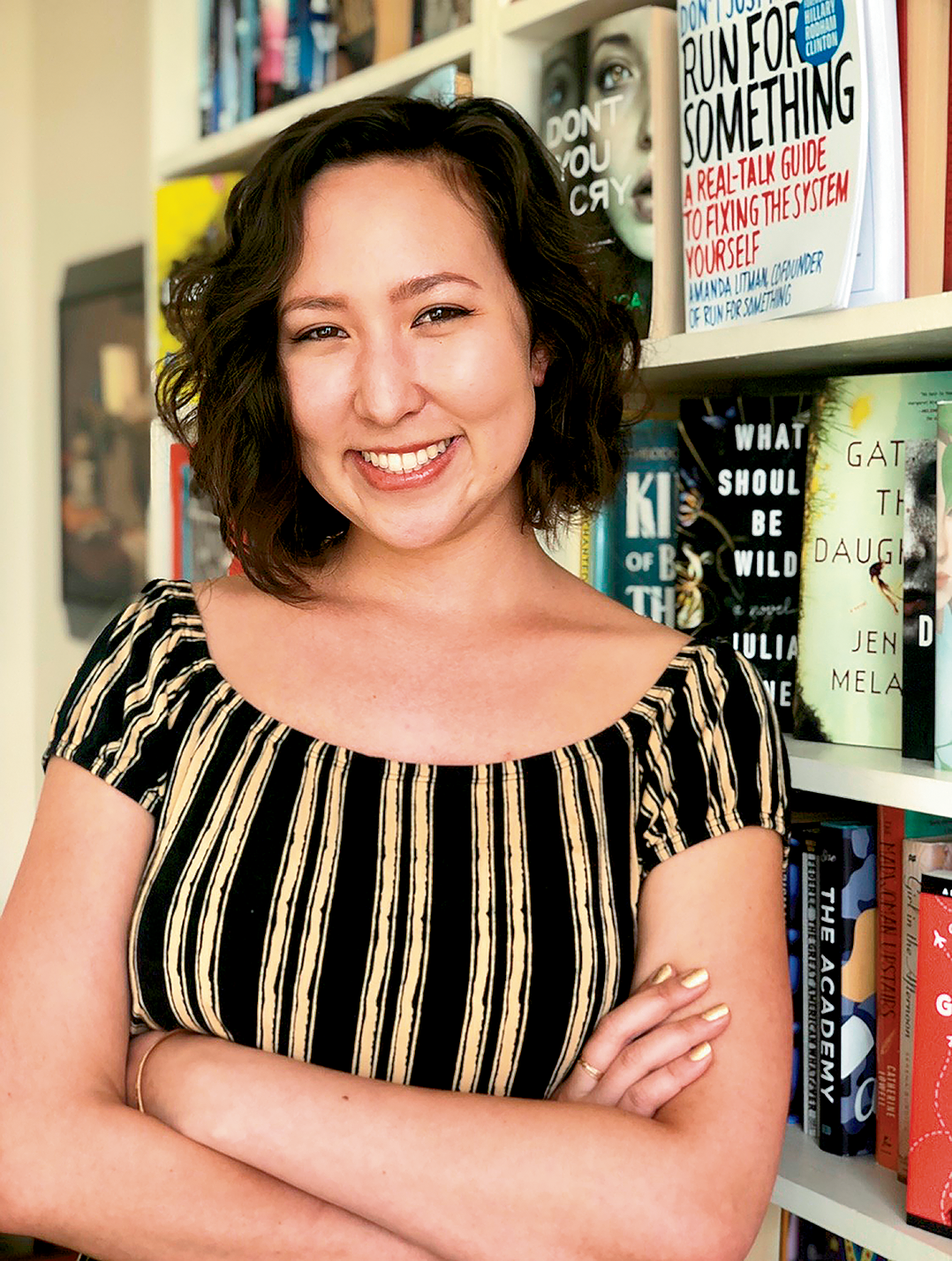To submit a question for the next featured agent, e-mail agentadvice@pw.org or write to Editor, Poets & Writers Magazine, 90 Broad Street, Suite 2100, New York, NY 10004. Questions accepted for publication may be edited for clarity and length.
Areas of interest: Adult upmarket and literary fiction, literary memoir, narrative nonfiction
On her bookshelf: Luster (FSG, 2020) by Raven Leilani, Sabrina & Corina (One World, 2019) by Kali Fajardo-Anstine, Salvage the Bones (Bloomsbury, 2011) by Jesmyn Ward, and Long Live the Tribe of Fatherless Girls (Bloomsbury, 2019) by T Kira Madden
Looking for: Query letter and the first few chapters in the body of an e-mail
Preferred contact: E-mail ikim@sjga.com
Agency contact:
Sanford J. Greenburger Associates
55 Fifth Avenue, Fifteenth Floor
New York, NY 10003
www.greenburger.com
I have finished a rough draft of a novel. As someone who knows no one personally in publishing or literary circles and has no following (even though I’ve worked in publishing), how do I get an agent?
S.C. from New York, New York
While connections to publishing or literary circles can work in a writer’s favor, neither a referral nor a significant following will win over an agent if the project isn’t right for their list. In fact, the “slush pile” is meant to level the playing field, and most of our agency’s clients have come to us by querying. Make sure you understand the genre in which you’re writing and submit your work to agents who are passionate about and understand the market for that genre. Research the agents who represent books that share similarities with your novel or authors you admire. Some free resources include the databases at Poets & Writers and Manuscript Wish List, Twitter, and agency websites.
When you address an agent, what is an effective and proper way to get the attention of the person who reads it?
Jenya from Canton, Massachusetts
The most effective and appropriate way to get an agent’s attention in a query letter is to appeal to their tastes as a reader. Any meaningful connections you can draw between their stated interests and your manuscript will help you—perhaps your book is similar in style or theme to a book they sold, or it fits the bill for a dream project on their #MSWL. Do your research: Look at their bio, their list of clients, their online presence, interviews, etc. Then tailor each query letter thoughtfully to the agent. A few “attention-grabbing” strategies that will likely backfire: being overly familiar in tone, citing details from an agent’s personal life, and marking your e-mail “urgent.”
What advice can you provide about submitting a book of short stories to an agent? Is it wise to compile samples from each story?
Catherine from Fairfax, Virginia
Before submitting your collection to an agent, it’s a good idea to first submit some—but not all—of the stories for publication in established, highly regarded literary journals and magazines. Publication credits are especially important for writers of story collections, as they demonstrate the strength of each stand-alone story and indicate an existing audience for your work. You’ll want to be sure that at least half of the material you’re submitting hasn’t yet been published. Once you’re ready to query, choose one or two complete stories to submit as a sample, based on the individual agent’s submission guidelines.
If, after sixty days, you have not heard back from a queried agent within an agency, should you send the query to another agent within that agency?
Leonard from Santa Fe, New Mexico
This depends on the agent’s policy. Check the agency’s submission guidelines and those of the individual agent. These guidelines usually specify whether the agent responds to each submission and, if not, the amount of time after which you can safely assume the agent has passed and whether you’re welcome to query another agent within the agency.
What is the best way to protect your work? I want to send my book out but I want to make sure that my interests are protected.
Courteney from Fort Thomas, Kentucky
Before submitting to any agent, make sure their agency is reputable. If they require any sort of “fee,” do not submit to them. An agent should only get paid when you get paid, and any agency that is structured differently is not legitimate. Research the agent’s sales record. Do they have experience selling books to a variety of presses and publishing houses? If not, do the agent’s colleagues possess that experience? Once you’ve established this, be discerning about who you share your work with. Try to get a sense of the agent’s philosophy toward agenting in order to decide whether your values and interests align and if they’d be the right advocate for your work.









